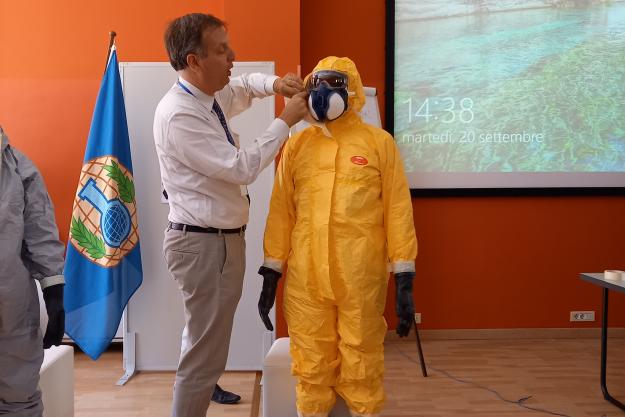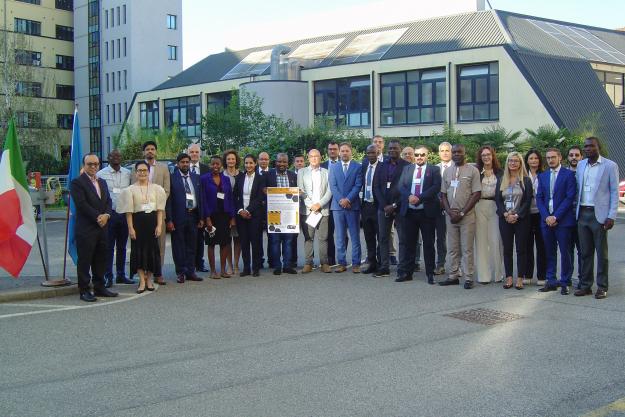
THE HAGUE, Netherlands—14 October 2022—The Organisation for the Prohibition of Chemical Weapons (OPCW) in partnership with the Italian National Research Council and the Italian Federation of Chemical Industry organised a workshop to promote safety and security management in chemical laboratories. The event was held from 20 to 22 September 2022 in Milan, Italy, and the participants included professionals from chemical industry, research and academia, and governmental agencies and institutions.
During the event, participants shared knowledge and conducted in-depth discussions on best practices on handling hazardous chemicals and assessing the related risks, personal protective equipment, emergency management, environmental impact, and sustainability. They also participated in a table-top exercise using a scenario involving hazardous chemicals to test emergency response and risk assessment skills. During the programme, attendees also visited the Lamberti chemical industry plant to learn about safety and chemical security management protocols.
In the opening remarks, the representative of the Italian National Authority for the implementation of the Chemical Weapons Convention (CWC), Enrico Fiorentini highlighted the importance of capacity and experience sharing between government institutions, the private sector, and academia. The official underscored Italy’s continuing support for the OPCW’s capacity-building programmes.
The event was attended by 17 participants from the following 16 OPCW Member States: Brazil, Cameroon, Chile, Côte d’Ivoire, India, Iraq, Italy, Kenya, Malawi, Malaysia, Morocco, Nepal, Pakistan, Philippines, Sierra Leone, Uganda, and Zimbabwe. Four technical experts from Italy participated as observers.

Background
Article XI of the CWC, Economic and Technological Development, provides international cooperation for the economic and technological development of States Parties.
As the implementing body for the Chemical Weapons Convention, the OPCW, with its 193 Member States, oversees the global endeavour to permanently eliminate chemical weapons. Since the Convention’s entry into force in 1997, it is the most successful disarmament treaty eliminating an entire class of weapons of mass destruction.
Over 99% of all declared chemical weapon stockpiles have been destroyed under OPCW verification. For its extensive efforts in eliminating chemical weapons, the OPCW received the 2013 Nobel Peace Prize.
